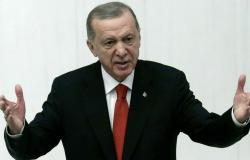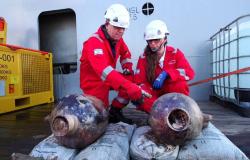Rome, 13 June 2024 – I largest on Earth in a small village in Puglia: one of the most anticipated and important international events of the year begins today: the G7 meeting. The meeting, between the heads of state or government of the seven largest and strongest economies in the world, is being held this year in Italy, in Puglia. Our country also holds The Presidency of the G7. But what is the G7? And what is the story of this meeting?
History
The idea of holding a more or less formal summit between the heads of state of the major democratic and capitalist powers was born at the time President of the French Republic, Valéry Giscard d’Estaing. It was 1975 and industrialized countries were still suffering the effects of the 1973 oil crisis. The French president then thought of organizing an informal meeting to discuss of the great global themes with the rulers of the major world economies and powers. The intent was to better coordinate to respond to the problems generated by the oil crisis.
Historic photo of the first G7
In 1975, Valéry Giscard d’Estaing invited the leaders of five nations to Rambouillet: the United States, West Germany, Italy, the United Kingdom and Japan. This first meeting was attended by the then German Chancellor, Helmut Schmidtthe US president, Gerald Fordthe Italian Prime Minister, Aldo Moro and its counterparts from Japan and the United Kingdom: Takeo Miki and Harold Wilson. On that occasion it was decided to make this meeting stable and annual and in Canada was admitted in 1976. It was at that moment that the G7 was born: the group of seven refers to the major European economies and the USA plus Canada. Since 1977, representatives of the European Economic Community, now the European Union, have also participated in the Group’s work. The EU does not take over the rotating Presidency of the G7.
In 1994 the Group of Seven expanded and became the G8: it was the one who joined Russian Federationborn after the dissolution of the USSR in 1991. The Russian president, then Boris Yeltsin, was invited, first as an external observer and then in 1997 he became an effective member of the group and took an active part in the discussions. The G8, however, was destined to return to the G7: in 2014, following the illegal annexation of Crimea, Russia was suspended. Three years later it was the same Putin to declare that his country would no longer take part in the event.
Over the years, G7 has progressively expanded its objectives and functions. Born as an ad hoc meeting to discuss the financial challengeshas transformed into a more formal venue, suitable for discussing major global challenges. This evolution became even more evident at the beginning of the new millennium, when the G7, precisely in order to better deal with such complex issues, started the first thematic ministerial meetings.
The operation
The G7 is not an international organization and therefore it has no permanent structure. Every year, starting from 1 January, one of the member states takes over the leadership of the Group. The nation holding the presidency acts as a temporary secretariat and is responsible for organizing and hosting the work of the Group and the Leaders’ Summit. Above all, the Presidency plays a key role in setting the agenda and identifying priorities. On 1 January 2024, Italy assumed the Presidency for the seventh time in its history, succeeding Japan, and will hand it over to Canada on 31 December 2024. At the topthe central moment of each G7, is attended by the Heads of State and Government of the seven member States, the Presidents of the Council and of the Commission for the European Union, as well as the States that are not part of the Group and the International Organizations invited by the Presidency .
The summits are prepared by Sherpathe personal representatives of the Heads of State and Government who are responsible for following the negotiations and drafting the final statement which closes the summit. These communiqués, and the decisions of the G7 in general, exert a significant influence on global governance and its decision-making processes. Since 1998 the Group has also met at ministerial level to address specific issues.





